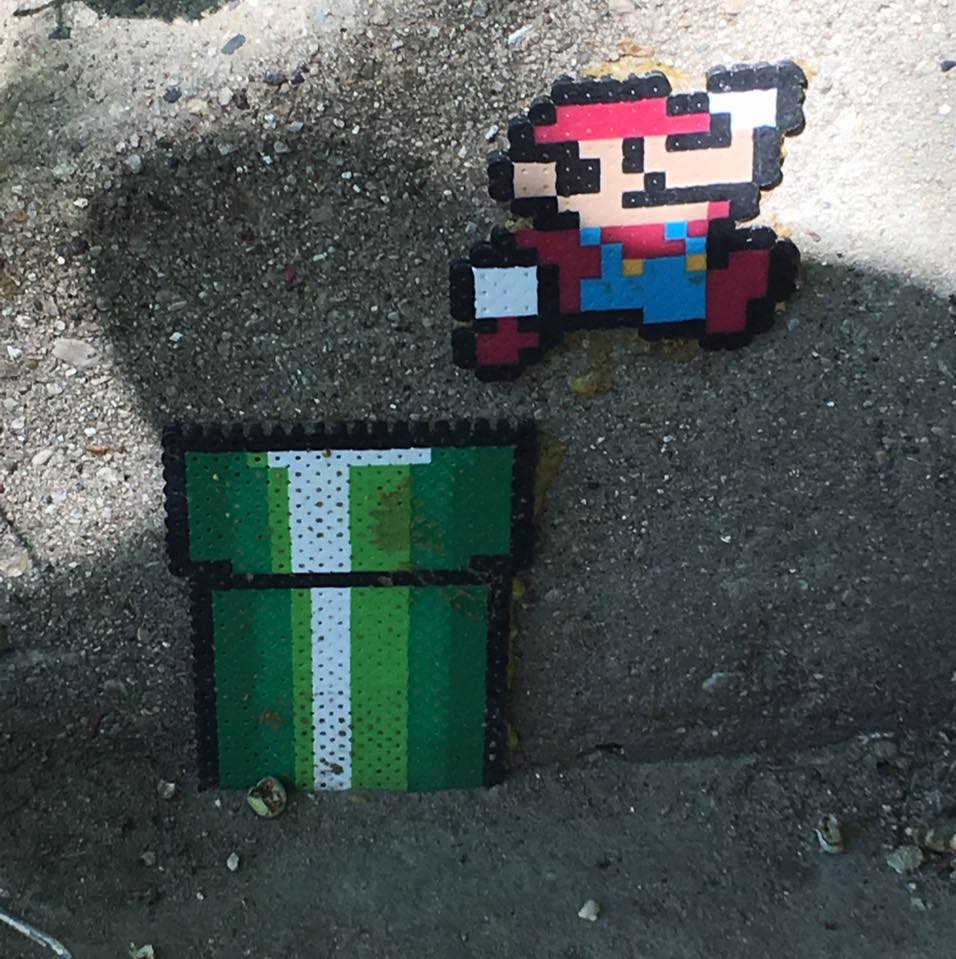ATLANTA (AP) — A new reactor at a nuclear power plant in Georgia has entered commercial operation, becoming the first new American reactor built from scratch in decades.
The third and fourth reactors were originally supposed to cost $14 billion, but are now on track to cost their owners $31 billion. That doesn’t include $3.7 billion that original contractor Westinghouse paid to the owners to walk away from the project. That brings total spending to almost $35 billion.
The third reactor was supposed to start generating power in 2016 when construction began in 2009.
A reactor that starts being built today will cost way more and will be delayed way more than these and they are already at least 14 years in the making not counted for the planning phase and 7 years late to be producing power and no they are not fully powered yet, because it takes another 1-2 years to get them to full power, not to mention drought and war threats.
Nuclear will not play any role in fighting climate change. A reactor starting planning today will most likely just replace an old model that is falling apart and to dismantle that and keep the parts safe somewhere costs another fortune.
Ironically, a major reason for this is environmentalists themselves. Nuclear power would be way cheaper if it wasn’t for their panic over things that contain atoms.
Ironically, a major reason for this is environmentalists themselves. Nuclear power would be way cheaper if it wasn’t for their panic over things that contain atoms.
In terms of safety, there’s a big difference between nuclear technologies that fail elegantly like LFTR and more traditional designs that tend to use weaponized isotopes with very long half-lives, and can meltdown and explode when operated incorrectly.
I can understand why environmentalists look at Chernobyl and Three Mile Island and say, hmm, maybe we shouldn’t do that.
The issue is you have a fairly large contingent that unknowingly bought the fossil fuel company kool-aid and wholehearted think all nuclear is bad
LFTR costs so much up front and if it does fail which is why it isn’t utilized, which sucks because it’s massively more efficient, cheaper to fuel, and like 1/10th the size. So over time it’s ultimately cheaper than current gen reactors. Even with the failure cost replacement, there’s no fallout because of its walkaway design, so yeah it’s a LOT cheaper than a normal reactor failing.
Also it’s the only reactor design so far that could work in space like on the moon or Mars.
I really doubt that environmental regulations more than doubled the price. Especially when they knew about those regulations when they were planning it.
Protests against nuclear power have certainly helped prevent many counties, US included, from investing in new reactors over the last 30+ years.
Right, but unless nuclear energy regulations have changed significantly since they started planning it wouldn’t have increased the cost.
Or maybe it costs $15 billion to drag some hippies out of the way, I don’t know.
That’s the easy way out, just blame it on panic and not numbers, because you do not have numbers that make nuclear power look good compared to renewable energy. This is not about grandma being scared, this is about scientists presenting scientific facts and studies.
There have been 3 fairly dangerous and catastrophic meltdowns rendering partial or whole plants inoperable within 4 decades. These meltdowns have caused long term environmental damage, killed people, etc.
If you’re averaging almost a meltdown a decade, and where each time we have been lucky it hasn’t been worse, I reject any claims that this is a safe technology that we have under sufficient control for it to make sense, especially when we have such cheaper and less dangerous ways to get the power we need now.
If you’re including Chernobyl in that list, it was a hopelessly out-of-date design and the operators basically did everything they could to make it melt down as part of some kind of misbegotten “safety test.”
If you’re including Fukushima, that one didn’t actually kill anyone. Though the tsunami that caused it killed over ten thousand.
Do you happen to know how many people get killed by hydro dams bursting, or by the side effects of coal power plants? Or the environmental degradation caused by the chemicals required for manufacturing solar panels? Nothing’s completely safe, but nuclear power happens to be one of the safest by comparison.
Now compare that with the amount of people killed by conventional power generated or how much of the planet was damaged when a spill occured. Bet the numbers don’t look so bad when you compare the two. Hell, let’s take it a step further and include the cancer causing effects of power generation on the people living in the vicinity of plants.
Nuclear has its problems, but quit spreading FUD.
The future won’t be these massive reactors, they’ll be the small modular ones that can be built in a factory and brought to location.
Lots of smaller micro grids that will be substantially easier to bring online
https://news.stanford.edu/2022/05/30/small-modular-reactors-produce-high-levels-nuclear-waste/
“Our results show that most small modular reactor designs will actually increase the volume of nuclear waste in need of management and disposal, by factors of 2 to 30 for the reactors in our case study,” said study lead author Lindsay Krall, a former MacArthur Postdoctoral Fellow at Stanford University’s Center for International Security and Cooperation (CISAC). “These findings stand in sharp contrast to the cost and waste reduction benefits that advocates have claimed for advanced nuclear technologies.”
and
“Small modular reactors won’t achieve economies of manufacturing scale, won’t be faster to construct, forego efficiency of vertical scaling, won’t be cheaper, aren’t suitable for remote or brownfield coal sites, still face very large security costs, will still be costly and slow to decommission, and still require liability insurance caps. They don’t solve any of the problems that they purport to while intentionally choosing to be less efficient than they could be. They’ve existed since the 1950s and they aren’t any better now than they were then.”
That’s really bad news, because renewable energy alone is not enough.
Yeah, people use this same argument for why fighting climate change is a bad idea.
It’s just way too expensive to switch to renewables, or improve public transit, or use more sustainable agricultural practices, or retrofit our shipping industry, or switch to electric vehicles and transit, or ban single use plastics.
Doing those things costs too much! They simply can’t be a part of fighting climate change.
It’s the same old tired oil propaganda. Anything that isn’t fossil fuels is too expensive!
And repeating their rhetoric for the last 50 years has served wonderfully to entrench fossil fuels.
Renewables are fantastic, but I think we’ll need to supplement with nuclear in order to shoulder the demand while we transition off of burning fossil fuels.
So in short, please build more.
Might have been a good idea 20 yrs ago, but starting this now would be just a waste of time and money. Concentrate on renewables, it will be much faster and bring the price down quick.
We can and should do both. In another 20 years we are still going to be fighting climate change. Nuclear power can help. It has unique advantages, like every power source. It should be part of the plan in some capacity.
The best time to plant a tree was 20 years ago, the second best time is now.
Renewables won’t be able to handle consistent base load requirements, especially as we transition to electric cars and have even more demand from the grid (and that’s not even talking about increasing energy demands for heating and cooling to combat the weather effects of climate change), and will need to be supplemented with another form of generation. We need to be building out both nuclear and renewable generation to get us off of fossil fuels as soon as possible.
An angle that sometimes isn’t brought up is the land space required by different types of power generation. Renewables actually take way more space, and therefore way more of the environment than nuclear. Renewables have their place, but I think nuclear will always be with us.
I am in agreement there. Nuclear power has to be on the table when discussing renewables.
Devils advocate, why built more nuclear plants when you could build more renewables? If it’s a scaling issue, in that you need a ton more infrastructure for renewables, and need to supplement with nuclear, wouldn’t that then always be the case in the future? I hear nuclear is needed to bridge the gap often, but it always sounds like it’s temporary, which I don’t understand - seems like nuclear would be needed forever if renewables aren’t able to scale well?
Take solar as an example, the current technology isn’t developed enough to generate the amount of Kilowatt hours necessary to provide ample power to users. You can’t build to scale yet. Buffering with nuclear power, despite the long-term fuel waste disposal, is an effective way to help eliminate greenhouse gases.
There’s a need for high capacity power generation, and at this point the renewable technologies are not developed enough to ween ourselves entirely off coal and natural gas. Then you have to take into account the growing EV demand, which has barely begun to generate user demand.
https://eu.boell.org/en/2021/04/26/7-reasons-why-nuclear-energy-not-answer-solve-climate-change
New nuclear power costs about 5 times more than onshore wind power per kWh. Nuclear takes 5 to 17 years longer between planning and operation and produces on average 23 times the emissions per unit electricity generated. In addition, it creates risk and cost associated with weapons proliferation, meltdown, mining lung cancer, and waste risks. Clean, renewables avoid all such risks.
On top there isn’t enough Uranium on this planet. Smaler power plants will use even more of that. One power plant is currently under a war threat.
There is the idea of nuclear power to be the best in our minds, because the nuclear power industry is one of the biggest lobbyists world wide and shapes that picture for us (with smiling people and green trees), but it is just a dream that does not hold up when thoroughly looked at.
Germany does just fine without. Yes we did prolong some of the power plants for security reasons when Russia started a war and we needed to become independend from them. But we would have done just fine without. The owners of the power plants were very reluctant to keep them running because it is expensive.
For example, in 2016, three existing upstate New York nuclear plants requested and received subsidies to stay open using the argument that the plants were needed to keep emissions low.
They are not sustainable without subsidies, because of the fast raising costs the older they get. For the same money New York could have built renewable energy sources in a short time frame.
In France most of the power plants are either closed for repairs, only on a fracture of their estimated output because of drought or damage and France went from exporting power to buying it while Germany is selling more energy than buying.
I know the dream is so beautiful and nice and the reality of nuclear power is all numbers and not at all easy to understand. Still, everyone needs to wake up from their dream.
Nuclear power can do things solar, wind and other renewables cannot.
Not being fully sustainable from a capitalist perspective is not the only variable that matters. France and Germany have in some cases replaced old nuclear reactors with fossil fuels, which themselves have received massive subsidies by the entire planet. How is that helping?
Nuclear is like watering a garden with a hose as opposed to renewables that has a squirt gun. The hose can shoot a lot more, a lot harder, for a lot longer. The squirt gun can do a good bit during the day but has to go be filled up at night from the nearby lake. It also doesn’t give nearly as much water nor does it do it as hard. The only benefit to renewables is the ‘bottomless’ aspect where no matter how much of it we use, there’s always more.
And not to go fully into this, renewables like solar panels require rare earth materials that we can run out of so hedging our bets on that is dubious at best. Fission, while fear mongered by media into the ground is amazing in modern times and Fusion is on the horizon to try and win the hearts of those still, somehow, unconvinced.
Way over schedule and WAY WAY over the price it was supposed to cost. They’ve increased our bills more than once because of this bullshit, including an increase this year. Nuclear may be needed but the price is very hefty for the forced customers of these power monopolies.
Commissioners will decide later who pays for the remainder of the costs of Vogtle, including the fourth reactor.
The GA Public Service Commission has never met a price increase they didn’t approve.
Worth it though to have working nuclear and help stop global warming. I personally don’t mind paying more to get more nuclear plants up and running.
Everyone keeps complaining about the budget and cost…but coming through COVID at only 2x isn’t unexpected.
It’s also a pretty big obstacle when the company you hired to design and build the reactor core folds.
Lessons were learned and the next one will be faster and cheaper.
I hope we build more for the sake of the climate.
Chakan, you’re a tough motherfucker, but I like your style.
Is this a pressurized water reactor, like the one at Fukushima?
Is this a pressurized water reactor, like the one at Fukushima?
Well that’s a shame. If you’re going to build new reactors, why not try a newer design that’s less risky and puts out less waste? Still waiting for a pebble reactor, for example.
Look, just because it’s a PWR, doesn’t mean it’s a bad design by default.
Fukushima was a Gen II reactor. These new reactors are Westinghouse AP1000’s and they’re classified as Gen III+. By comparison, Fukushima’s reactors are archaic in design.
Gen III+ reactors are smaller, and are greatly simplified designs, and most importantly, have passive cooling features. Passive cooling is what Fukushima didn’t have. If the external power gets cut to these new reactors for an extended period of time, AND the backup generators get knocked out too, they can leverage these passive features to cool the reactor and prevent a Fukushima-style event.
That is very cool information
deleted by creator














